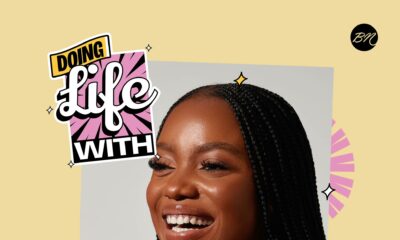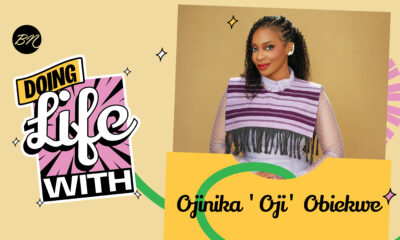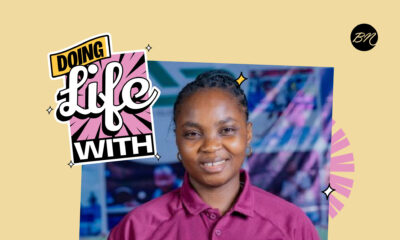Features
Today’s “Doing Life With…” Rach Idowu Looks Into What it Means to Live With ADHD
Before I was formally diagnosed with ADHD, I thought I was developing early-onset dementia. I started to notice that I was forgetting things, poorly organised, and dealing with ADHD tax.
Doing Life With… is a BellaNaija Features series that showcases how people live, work, travel, care for their families and… everything in between. We are documenting the lives of all people and ensuring everyone is well-represented at BN.
Did you miss the last conversation with Debby Ojay? You can catch up here.
This week, we’re doing life with Rach Idowu who is using her platforms to advocate for ADHD. She gives us a glimpse into her life, background and journey. Enjoy!
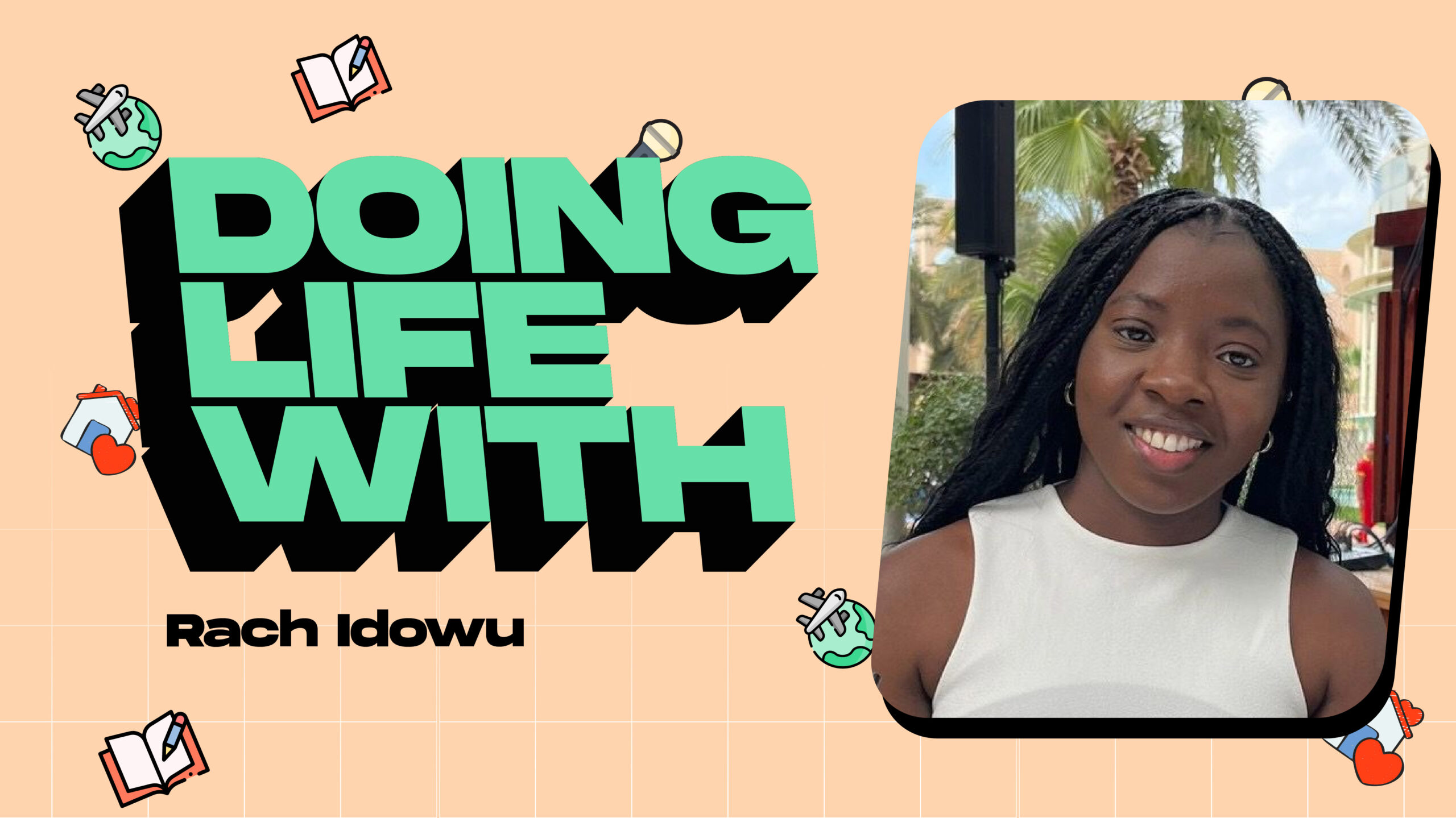
Hey Rach, how are you today?
I’m doing great today. I’m currently on holiday in the USA visiting family in a few states and getting to see new places on my bucket list.
Awesome! Give us a peep into your background
I was born and raised in London to Nigerian parents. I am the middle child and had middle child syndrome being 2 years apart from my 2 sisters. Growing up, I had so much energy as a kid. I was always outside rollerblading, playing with neighbours, and an avid gamer. In school, I was always drawn to subjects that left room for imagination/interpretation like Sociology, Media Studies and Business. My teachers would tell me that I had the gift of the gab, I was charismatic and I had the attention span of a goldfish. In 2016, I graduated with a BA (Hons) in International Business with two years of study abroad from the University of Hertfordshire. During my studies, I spent a year abroad at the University of North Carolina Wilmington in the US and a semester at Universitat Pompeu Fabra in Barcelona. I also completed a 6-month internship working for a US company in Barcelona.
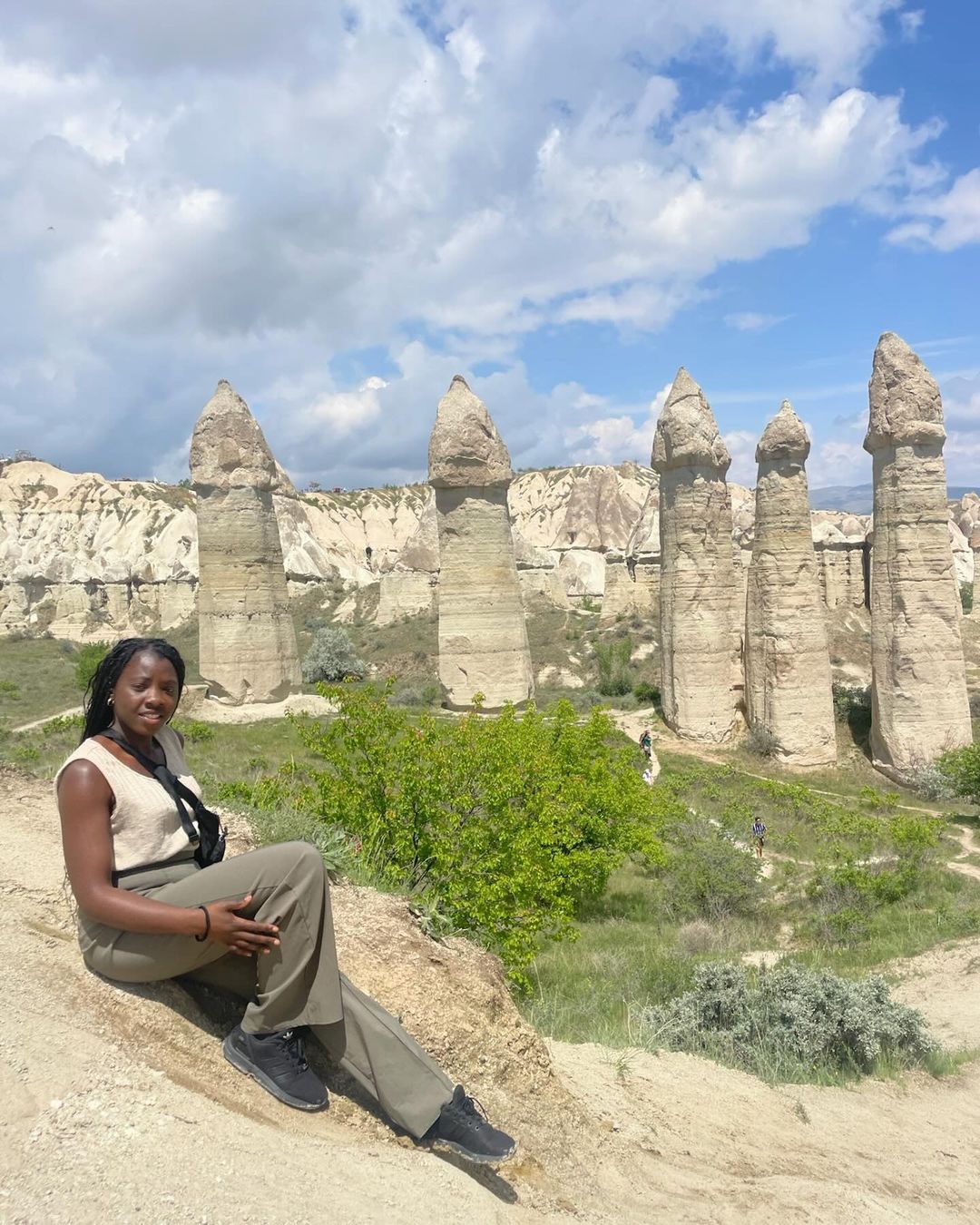
Tell us a little about your career
I spent most of my career working in the UK Civil Service, doing a range of roles from Procurement, Contract Management, Commercial, and Policy. I tend to be drawn to high-pressured and high-profile roles that give me a lot of responsibility and enable me to engage with a range of stakeholders. I no longer work for the UK Civil Service; I currently work in the Utilities/Energy sector in the Electricity Markets. My role is more of an operational role where I work with stakeholders, experts and industry, ensuring the security of the electricity supply and working to ensure we operate a decarbonised electricity system by 2035.
Sounds like a lot. You’re vocal about living with ADHD, tell us about it
Around 2016, before I was formally diagnosed with ADHD, I thought I was developing early-onset dementia. I started to notice that I was forgetting things, poorly organised, and dealing with ADHD tax. I was just all over the place. I booked an appointment with my General Practitioner, and she gave me a memory test on the spot, which I passed. Fast forward to 2018, I started the process of getting assessed for ADHD. My GP initially said she didn’t think I could have ADHD because I graduated and had a good job. I had to push her to refer me to the psychiatrist for an assessment. In January 2020, at the age of 26, I was diagnosed with ADHD Combined Type. The whole diagnosis process took 1 year and 6 months via the UK National Health Service. I initially felt a sense of relief because I had answers. If it wasn’t ADHD, I was sure it was probably a brain tumour — thank God it isn’t. And then I felt sad, thinking about what my life could have been like if my ADHD had been identified earlier on because of the support and treatment I would have received, which would have helped. Since then, I have been raising awareness online, featured in many news publications (BBC, NY Times, etc.), and invited to speak about ADHD/Neurodiversity in the workplace.
We’re proud of what you’ve done, Rach
Thank you.
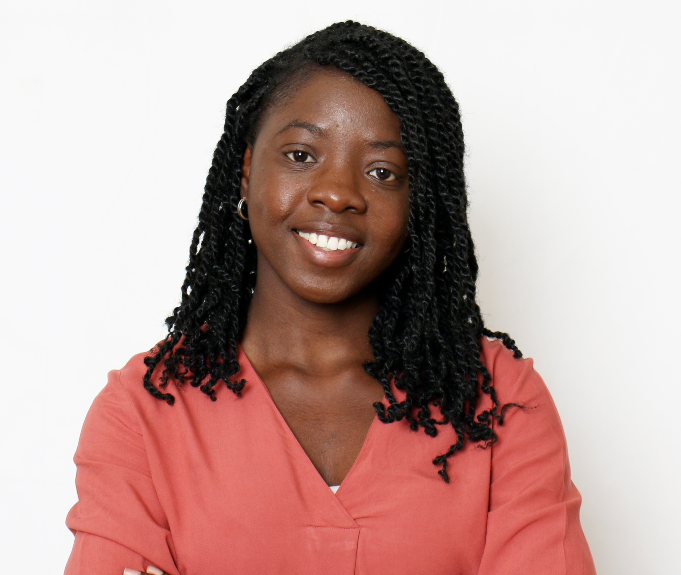
How has living with ADHD influenced your daily routine and lifestyle?
Trying to stick to a routine feels like I’m putting my on-the-go ADHD brain in a cage, that it doesn’t want to be in. I know that routines are meant to be helpful but I can’t help but feel restricted and bored with having a daily routine. I think it’s important to find what works for you, that doesn’t feel like a chore or self-punishment. There is no set way of adulting with ADHD but here are a few things that I have found helpful I have found a few things to be helpful: using a reward system, employing gamification methods, practising productive procrastination, using fidget toys, engaging in body doubling, writing a list to organise my thoughts before starting a task, picking 1-3 ‘must dos’ for the day, and setting daily markers instead of creating a strict schedule, which allows for more flexibility. I also use the ADHD Traits Flashcards I created which include a coping strategy for each symptom I’m struggling with, which makes things so much easier.
You’re very open about ADHD on social media. How do you maintain a positive mindset and stay motivated despite the challenges of living with it?
I only started my AdultingADHD Substack newsletter and also tweeting about my ADHD because my post-diagnosis appointments with the psychiatrists got cancelled due to the COVID-19 lockdown in the UK. I had no one to turn to, so I started my newsletter as an informal online buddy to anyone else feeling lonely and mainly for myself. It’s amazing to have over 11,000 subscribers now. I was dealing with internalised ableism and embarrassment so my Twitter account was anonymous for about 1 year which helped me develop confidence and build community online. I have good days and bad days but not chasing perfectionism has helped me a lot. I also have supportive friends and family and my faith in Jesus helps me tackle feeling defeated, down and not enough.
What advice would you give to others who have been recently diagnosed or are struggling to manage their ADHD?
Your brain isn’t broken, you’re not lazy or worthless. We need to reject every negative word given to us and try not to internalise people’s negative opinions. I know it’s easier said than done but it’s important to be said. Also, finding community makes a massive difference. If you don’t have an in-person community, tap into social media platforms and virtual groups. If you don’t know where to start, a simple search for ADHD or asking a question is a way to start. Also, a big thing that helped me was listening to ADHD podcasts like Translating ADHD, ADHD Rewired, ADHD for Smart Ass Women, and take control ADHD podcast. I find listening to guests who have ADHD and are in the working world encouraging and relatable and I learn a lot as well.
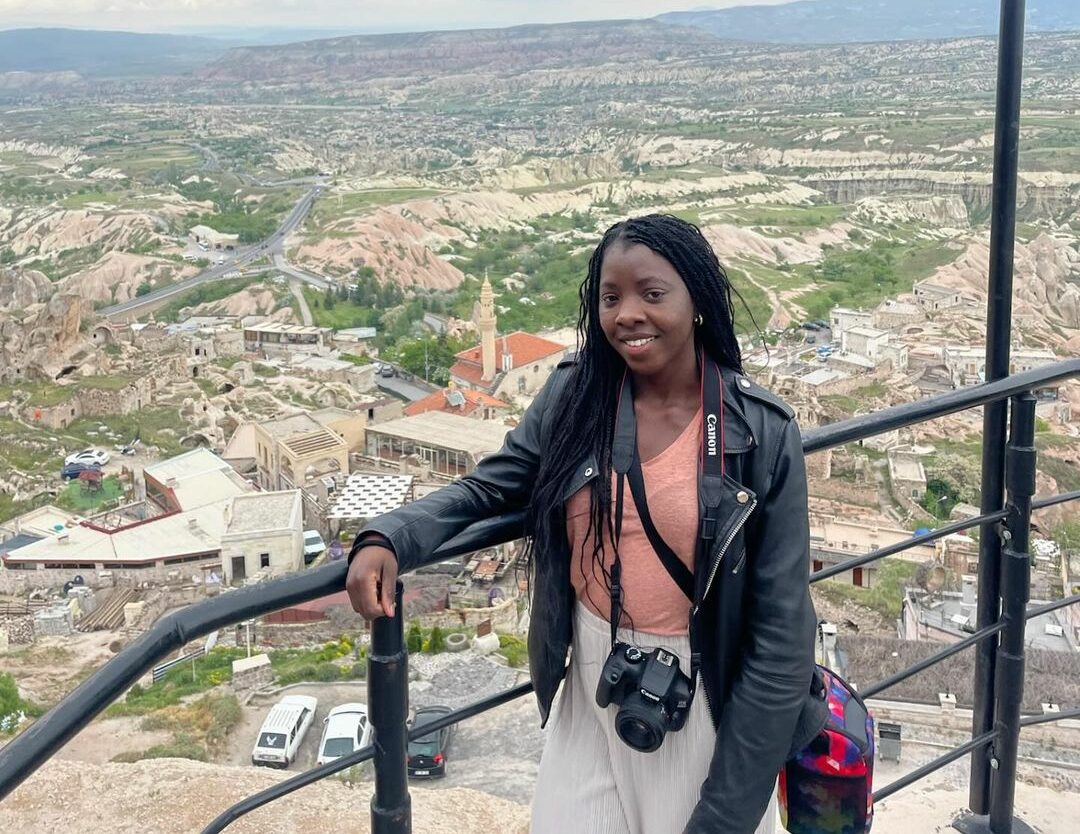
What’s a typical day for you?
I like to wake up between the hours of 5-6:30 am, whether I’m working from home or going into the office. The first thing I do is open the YouVersion Bible app where I read a bible plan and then I put on some gospel music on Spotify. I still have a bad habit of scrolling through social media though. If I’m working from home, I’m all showered and dressed before 7 and then I make myself a cup of coffee. I work on personal projects such as writing for my newsletter, editing a YouTube video or doing some coding before the day job starts.
I log on to work between 8:30 to 9 a.m. and then it’s meetings, tasks and deadlines. After work around 5:30ish, I have to decompress for at least 45 minutes. This is either going for a walk around the neighbourhood or lying flat in bed. After work on most days, I’m catching up with my fav TV series, meeting up with friends or going to an event. On Wednesdays, I have improv classes from 8-10 pm, and then I might go to the pub with my class at 10 pm. Then it’s bedtime. On the weekends, it’s mostly working on passion projects, meeting up with friends and family and then church on Sundays.
What’s that unconventional thought about the world that you think people might not agree with?
I’m not sure if this is unconventional, but I think governments should build underground bunkers. Everyone should be assigned bunkers based on locations in the event of an apocalypse happening. Entry should be optional, of course. You can probably tell I watch way too many sci-fi shows. Haha.
A moment or experience when you felt particularly proud of yourself?
I honestly never thought I’d be able to use my story to help many adults with ADHD, especially being booked to speak at different companies. Recently, I was helping someone with ADHD who was extremely suicidal and just felt lost and hopeless. They were diagnosed with ADHD but still didn’t have support or access to treatment. I spent some time listening to their issues and providing practical suggestions. I also gave them decks of the ADHD Flashcards. I was told by their relative (who introduced me to them) that they’re doing extremely well and life has turned around for the better. It was a special moment.

Awwwn. A skill or hobby you picked up in the past year and enjoy?
Improv! I completed Level 1 in May and completed Level 2 in July which ended with my first live performance in a packed room. The highlight was being able to be creative and be any character on the spot, it also helped that the audience found me funny.
One crazy thing you’d do if the world wasn’t watching you?
I would borrow a monster truck (like you see on TV) and ride it around town.
Haha, sounds fun! One thing in your everyday life that brings you joy?
Lately, I’ve been practising more gratitude. So being grateful that I’m alive, having friends that make me laugh and just being able to help people in any way that I can.
Rach in three emojis?
😍🙏🏼🎉
Thank you for being on Doing Life With…, Rach
Thank you for having me, BellaNaija.
__
Many thanks to Rach Idowu for having this conversation with us and answering all our questions.
Do you love this content, have any feedback for us or want to be a BellaNaija Features contributor? We’d love to read from you. Shoot us an email: [email protected]. Join us on Saturday for the next episode!


